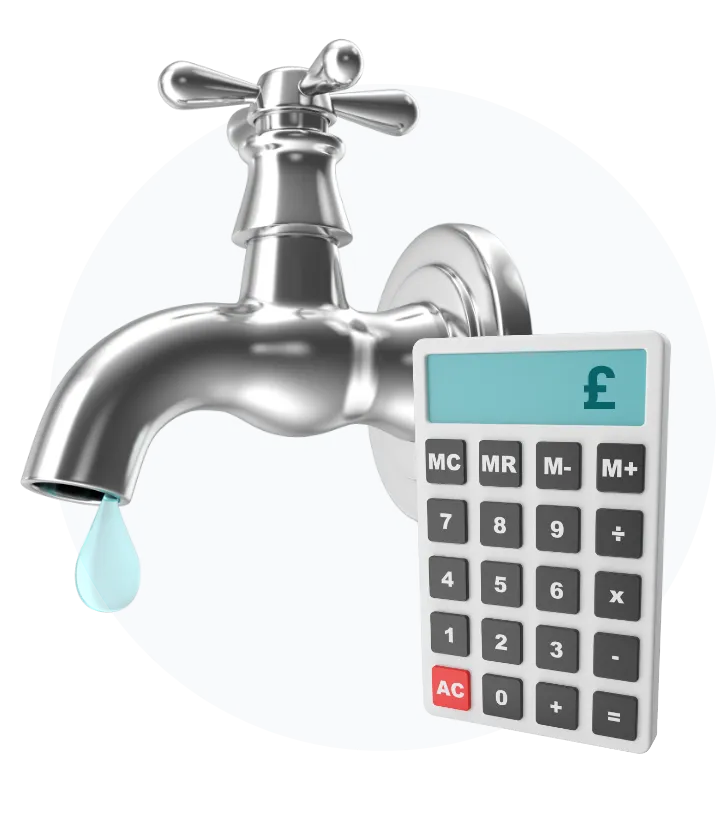The UK population uses a whopping 14 billion litres of water per day, with an estimated 3.17 billion litres lost daily to leaks. Around 3-5% of the UK’s daily water usage comes from households, 5% by businesses, and the rest by agriculture. This significantly high water usage from the UK and the rest of the world is having a detrimental impact on our global water supply, with water scarcity already prevalent across the globe including the Middle East and North Africa. This problem is only expected to worsen, and it’s estimated that more than half of the world’s population will reside in water-stressed areas by 2025.
Saving water where possible should be a priority for households and businesses to ensure that we protect this scarce resource. In this blog we will explain why water conservation helps the environment.
Table of Contents
Key causes of water shortages
The growing demand from businesses and households is not the only cause of water shortages. Other key contributors to the dissipating global water supply include:
Climate change
Climate change is disrupting regular patterns of weather, leading to extreme weather events and unpredictable water availability. More extreme weather events can also cause water supplies to become contaminated.
Water pollution
Only 1% of the world’s fresh water supply is accessible to humans, however, this is being threatened by human activity. Water pollution results from a vast range of human activity including sewage and wastewater.
Lack of infrastructure
The growing population and demand for water amid water stress from climate change is putting even greater pressure on global water supply. Some regions across the globe don’t have sufficient infrastructure to properly manage this increased demand for water. This prevents clean water from reaching those who need it most.
Water is being wasted
Various inefficient processes such as flood irrigation and water intensive cooling at thermal power plants often use more water than necessary. Also, inefficient taps, boilers and toilets around businesses and homes has an impact on water wastage.
How does your water use add up?
See how much you could save by installing water management solutions in your washroom
How saving water is good for the environment
Doing what we can to save water, even in small volumes, will positively impact the environment in a number of ways, by:
Protecting wildlife
Water conservation plays a crucial part in wildlife conservation. Freshwater animals are the most vulnerable when it comes to changes in water supply, with their habitats depleting as a direct result. Human activity has resulted in a 75% decline in freshwater species, with this anticipated to decline further.
Using less water within your business will enable more water to remain in our ecosystems and will help wetland habitats thrive, providing a safe home for freshwater animals such as fish, otters and herons.
Our current water usage is also having an impact on the health of our coastal ecosystems. All our homes and businesses are connected to sewers or septic systems that direct our wastewater to treatment plants. Sometimes, these treatment plants can become overwhelmed during times of increased demand. This reduces the plant’s ability to effectively treat the water, meaning all sorts of harmful bacteria can be discharged into the ocean.
Reducing the amount of water we flush down our drains will minimise the amount of wastewater directed to treatment plants, ensuring all wastewater is treated effectively before being discharged into the ocean. This will help protect coastal habitats and wildlife, whilst also improving the quality of our drinking water.
Minimising your carbon footprint
Reducing your water consumption saves energy. Water usage accounts for 6% of carbon dioxide emissions in the UK as energy is required to heat, filter and pump water to your business. Improving the water efficiency in your organisation will not only minimise your water usage but will reduce your carbon footprint. In turn, you will drive down your water and energy bills.
Preserving our food supply
Water scarcity has a direct impact on food insecurity. Around 2,000 to 5,000 litres of water are required to produce a person’s daily food intake. Water is an important component of food production and without it, farmers would not be able to grow fruit and vegetables or feed their animals.
As the global population increases, demand for food rises and even more water is required to fuel food production. Conserving water is therefore vital to support food production.
Save water, save the environment
It is critical that businesses and households do what we can to conserve water and protect our environment. Even small changes, such as fixing a dripping tap could reduce your water usage by up to 90 litres a day.
Citron Hygiene can help your business take even bigger leaps in reducing its water consumption with our water management solutions. Installing Citron Hygiene’s Intelligent Water Management System can lead to an immediate reduction in waste water usage by up to 90%.
Get in touch today to find out how Citron Hygiene can support your business to save water, minimise costs and protect the environment. Or, for more tips read our guide to saving water in the workplace.

